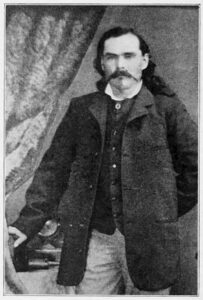
Introduction
Imagine being abruptly awakened in the middle of the night to find a person formed entirely of radiant light standing at the foot of your bed. Their luminosity not only illuminated their features but also bathed the entire room. Despite your initial fear, the person’s calming voice reassured you, and they shared an extraordinary theological principle previously unknown to you. This revelation was precisely what you had been searching for- the essence of what you had always longed to hear.
However, just as suddenly as they had roused you, the luminous figure vanished. Naturally, you would find it difficult to return to sleep. Perhaps you would hastily grab a pen and record the words they spoke. Maybe you would even wake your friends by calling them to share this incredible encounter.
The following day, you would promptly begin living according to this newfound understanding, this revelation bestowed upon you by the angelic presence of the previous night. To your amazement, it worked! By implementing the teachings of this angel, you witnessed remarkable outcomes and experienced the positive effects firsthand, gaining many of the things you had wanted for some time.
But here’s the dilemma: this new revelation contradicted some of the teachings you had always believed based on the Bible. It presented both alignment and divergence. Now, faced with this situation, what should you do?
Unfortunately, many would accept what this angel said; after all… it was an ANGEL, right?

Another Gospel
Paul addressed this issue with the Galatian church, who had started embracing what he referred to as a “different gospel” (Galatians 1:7 NIV). He warned them about individuals who were causing confusion by distorting the true message of the gospel by adding works as a requirement to be saved rather than salvation by faith. Paul explicitly stated that even if he or an angel from heaven were to preach a gospel contrary to what he had initially shared, they should be considered under God’s curse (Galatians 1:8).
Paul emphatically instructed them to reject any message that deviated from the original one he had preached, regardless of whether it came from him or an angel of light.
In 1 John 4, the author addresses a similar concern, cautioning against blindly believing every spirit and advising to test them to discern if they are from God. The reason for this caution is the presence of numerous false prophets in the world. John provides a guideline in 1 John 4:2, stating that a spirit that acknowledges and confesses Jesus coming in the flesh is from God, while any spirit that denies this is not from God.
In the cases of these false teachers and prophets, Paul and John discuss one specific topic; the topic of salvation. Paul was speaking against a group teaching the Galatians that they had to add certain works to their faith to be saved, but they had originally been taught about salvation by grace, not by works. John spoke of the gnostics who did not believe that Jesus had come in the flesh. However, the original teaching of salvation was that Jesus had been born a man, had lived a sinless lives, and had died on the cross for our sins. The readers were given a straightforward test for identifying these false teachers and prophets. What was the original truth that you were taught?

Both Paul and John focus on the topic of salvation when discussing false teachers and prophets. Paul confronts a group that taught the Galatians to add specific works to their faith for salvation, despite initially learning about salvation by grace alone. John addresses the gnostics who deny that Jesus came in human form, while the original gospel teaches about Jesus being born as a man, leading a sinless life, and dying on the cross for our sins.
These teachers and prophets can be tested by asking what the original truth they were taught is and determining whether they hold to that original truth.
Modern Prophets and Teachers
In today’s society, individuals promote beliefs that Paul would not even consider part of the true gospel. Over the past 2000 years or so, Christianity has splintered over and over again, developing all manner of doctrines about salvation. In a particular instance, an individual claimed to have received a new Bible from an “angel of light,” subsequently establishing an entirely new variation of the Christian religion.
Certain Christian denominations officially assert that salvation is achieved solely through faith. However, their real-world teachings and customs often call for a combination of faith and good deeds. Conversely, other denominations insist on the necessity of confession to a priest or fulfilling additional requirements to gain true righteousness in the eyes of God. They have introduced varying rituals, traditions, and even specific attire as prerequisites for a correct relationship with God. Some of these groups even completely disregard original teachings, instead aligning with current societal norms. Therefore, the guidelines laid out by Paul and John still have relevance in our contemporary Christian landscape.

Conclusion
We must consider the critical question: “What were the original teachings?” What lessons did Jesus impart, what did the other apostles teach, and what has been recorded in the Bible? This is the original narrative. Despite numerous contemporary attempts to undermine the Bible’s validity and significance from various angles, it endures as the most complete and trustworthy repository of truth and faith in human life.
I firmly believe that the Bible, as present in today’s Protestant church, is God’s word. It was written under God’s authority and inspiration and is given to us for our benefit. An honest study of the Bible’s origins provides ample reasons to trust it as the inspired word of God, as it claims to be.
In the Bible, we unearth the profound truth of salvation, the pivotal role of Christ’s sacrifice on the cross, the necessity of repentance, and the extraordinary notion of a spiritual rebirth into a life infused with the Holy Spirit. The scripture illustrates our divine adoption into God’s family, where, despite our flaws, we experience forgiveness, transformation, and inspiration to nurture our connection with Him.
The Gospel, or the “good news,” delivers the joyous proclamation that we can approach God’s presence, cultivate a harmonious relationship with Him, and journey alongside Him. We seek Christ, unite with Him in death, and resurrect with Him to a new existence as renewed beings. No longer bound by the mundane pursuits of this fleeting world, we strive for His purpose, His glory, and to see His face.
As John shares, Jesus, part of God, pre-existing all earthly and human beginnings, was the embodiment of God’s very thought, the Word in human form. He graced our world, simultaneously fully divine and fully a man, leading a life free from sin, ultimately offering Himself as a sacrifice to atone for the sins of the world.
Achieving this relationship with God can only be realized through the workings of the Holy Spirit and Jesus’s sacrificial act on the cross; no alternative path exists. Regardless of its reception in contemporary Christian communities or among religious modernists, and irrespective of personal preferences, this remains the immutable original truth. To echo Paul’s words – should anyone approach you with teachings divergent from this, even if it is an angel of light, do not believe them.






